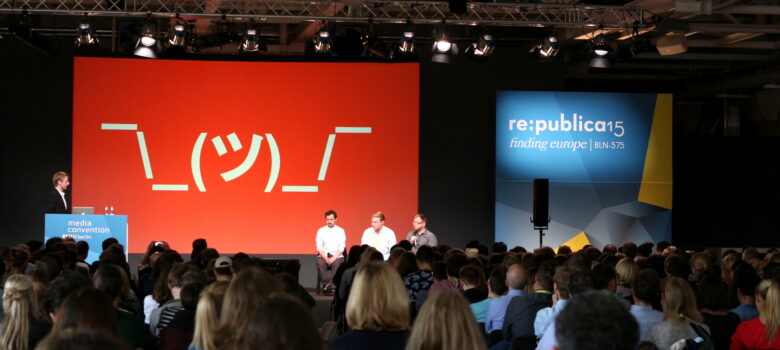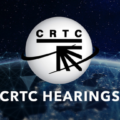The Rogers outage came to Parliament Hill yesterday as the Standing Committee on Industry, Science and Technology conducted four hours of hearings into the issue. The day started with Innovation, Science and Industry Minister Francois-Philippe Champagne, followed by Rogers CEO Tony Staffieri, CRTC Chair Ian Scott, and a panel of consumer and public interest voices. I was pleased to be part of the final panel and I’ve posted my opening remarks below and created a special Law Bytes podcast featuring my opening remarks and the question and answer session with MPs.
Law Bytes podcast Episode 137 can be downloaded here, accessed on YouTube, and is embedded below. Subscribe to the podcast via Apple Podcast, Google Play, Spotify or the RSS feed. Updates on the podcast on Twitter at @Lawbytespod. Credits to the Standing Committee on Industry, Science and Technology (here and here).
I opened my remarks by noting how discouraging the day was:
We need more than tough talk and references to Ministerial demands to CEOs. This is about far more than who called who or solely about the failure of one company. We must recognize that private phone calls or beers among the companies, legislators or regulators isn’t the answer. And it can’t be about saying I’m sorry, but then evading questions on key issues such as essential services as if it is hard to acknowledge directly that 911 calls should be an essential service or about a regulator blithely dismissing the role that competition played in this event or that new regulations could play. Today’s inescapable takeaway is that much more needs to be done and it must come through a legislative framing.
Indeed, perhaps the most disappointing aspect of the hearing is how it quickly became readily apparent that any prospect that the massive Rogers outage affecting millions of Canadians might become the much-needed wake-up call for reform has already largely passed. The MPs from all parties seemed to get the anger and frustration among Canadians, but it is pretty much business as usual for the Minister, CRTC, and even Rogers. In fact, all three sounded more or less the same on the key issues as they all sought to downplay suggestions that there were broader concerns with Canada’s communications system at work.
Minister Champagne kept talking about demanding action from Rogers, but when the questions turned to competition or the proposed Rogers-Shaw merger, he was quick to change the subject. In fact, when pressed he downplayed the role that competition might have played in the outage, noting it might help network resilience but seeking to treat the outage a one-off limited to a single company. By the end of the hour, Champagne had said little about competition, the merger, legislative reform, and the weakness of the CRTC. However, there were no shortage of references to “demanding” action or being in “solution mode.”
Rogers CEO Tony Staffieri was even better at staying on message. That message was that Rogers is sorry and will spend huge sums of money on its network to avoid a repeat outage. But when asked about whether telecom should be viewed as an essential service, he refused the answer question. When asked if 911 access was an essential service, he refused to answer the question. When asked about regulated compensation and competition, he refused to answer the question. One question he did answer was about consumer choice, leading to the best exchange of the day with Liberal MP Nate Erskine-Smith:
Erskine-Smith: You think Canadians have alternatives and choice in this marketplace?
Staffieri: Very much so
Erskine-Smith: And you’re saying that with a straight face?
That left CRTC Chair Ian Scott to complete the trio. Scott similarly dismissed competition as a concern with the outage, claiming it is a different issue and that it was “not obvious it would make a difference.” Scott has little faith that regulations would have changed anything either, arguing that the outage was a technical challenge. In fact, Scott was so intent on defending Rogers and the status quo (his initial view of the heavily redacted Rogers’ submission is that it is transparent and the company is being cooperative), that one MP later lamented that the Chair of the CRTC sounded like a telecom executive.
The final panel – consisting of John Lawford, Dwayne Winseck, Ben Klass and me – also sang from much the same songbook. But unfortunately, unless the Minister and CRTC are willing to change their tune, Canadians can expect more of the same on the telecom file.
Appearance before the House of Common Standing Committee on Industry, Science and Technology, July 25, 2022
Good afternoon. My name is Michael Geist. I am a law professor at the University of Ottawa, where I hold the Canada Research Chair in Internet and E-commerce Law, and I am a member of the Centre for Law, Technology, and Society. I appear in a personal capacity representing only my own views.
I have to begin by noting how discouraged I’ve been by what I’ve heard for the past three hours. We need more than tough talk and references to Ministerial demands to CEOs. This is about far more than who called who or solely about the failure of one company. We must recognize that private phone calls or beers among the companies, legislators or regulators isn’t the answer. And it can’t be about saying I’m sorry, but then evading questions on key issues such as essential services as if it is hard to acknowledge directly that 911 calls should be an essential service or about a regulator blithely dismissing the role that competition played in this event or that new regulations could play. Today’s inescapable takeaway is that much more needs to be done and it must come through a legislative framing. To that end, I’d like to highlight the following seven measures.
First, the investigation should extend beyond the CRTC’s initial round of questions and today’s hearing. Organizations such as Interac, governments, and health care providers need to explain how they found themselves without redundancy plans and an appropriate backup system to address wide scale network outages. Assuming some of these questions are outside of the CRTC’s remit or it is unwilling to extend what is itself an uncertain process further, it falls to this committee to expand this study and ask those questions in a public forum.
Second, there must be greater transparency with respect to outages. Rogers can’t claim to support transparency and simultaneously request widescale redactions in its submissions to the CRTC. The Commission should reject the request for redactions where it is in the public interest, which seems to apply here given that public safety is involved. Further, there is a need for a consistently transparent approach to network outages and extended downtime. These should be filed with the regulator on a quarterly basis and disclosed to the public.
Third, consumer compensation requires more than a company simply saying it considered the matter and decided what it thinks is appropriate. There should be regulations that establish clear parameters for compensation, including mandated payments for downtime that are applied automatically to consumers’ monthly bills.
Fourth, communications standards on outages should also not be left to the carriers alone. Outage maps, estimated times to address problems, and consistent, widely accessible communications have become standard for other utilities such as hydro. The same should be true for communications services with penalties levied for failure to meet the requisite standard.
Fifth, competition concerns with Canada’s communications sector must be met with real policy reforms. While the Rogers CEO may try to claim otherwise with a straight face, few dispute the competition problems that leave Canada’s broadband and wireless pricing as among the most expensive in the world. The carriers have often touted the link between high prices and network quality, but the latest outage confirms that the networks often fail to live up to the industry hype. Instead, the high prices mean consumers gravitate to riskier bundled options in order to reduce pricey monthly bills. Canada needs real competition that draws on both facilities-based and services-based competitors.
Sixth, the Rogers-Shaw merger should be regarded as dead in the water as the last thing Canadians need is an even more concentrated market. This committee has already recommended that the merger not proceed, but left an out in the event that it does. It should adopt an even stronger position in opposing the merger now.
Seventh, the next chair of the CRTC is scheduled to be appointed in the coming weeks. In the aftermath of the Rogers outage, a former CRTC chair posted about a Commission investigation: “ I don’t think the CRTC is the body to run such an inquiry. They have become captive to the big players and the current membership are not trustworthy truth seekers.” This cannot stand. It is essential that the chair prioritize Canada’s communications infrastructure and its impact on consumers and business as the single most important policy issue faced by the CRTC. That person must be independent with knowledge of the sector. While there has been an emphasis on cultural policy in recent months, Cancon policies don’t matter if Canadians can’t access the content. Since communications is job one, a truly independent, digital and network focused chair of the CRTC is essential.
I look forward to your questions.












Very informative -keep the pressure on!!
The Rogers outage came to Parliament Hill yesterday as the Standing Committee on Industry, Science and Technology conducted four hours of hearings into the issue.
I think you have a good point and reforms should be applied as soon as possible. Thank you for sharing this information.
dryer vent cleaners
Great information. Love your inputs, keep it up!
Bellingham Professional Painters
Thanks for every other informative site.